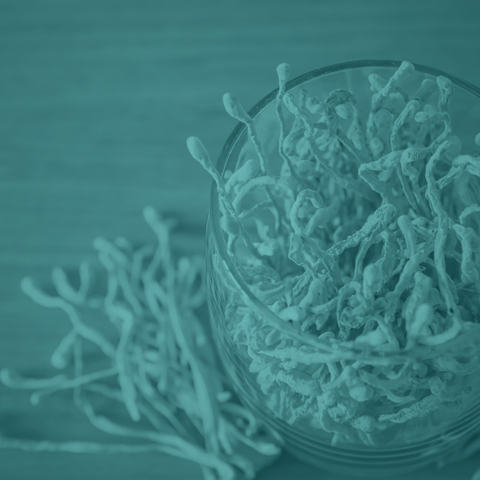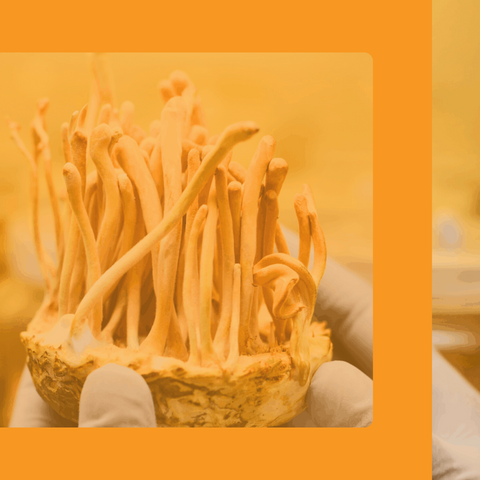Learning & education: Cordycepin

In this article, we will be looking at whether cordycepin has the potential to boost performance and recovery in an exercise setting.

In this article, we'll be delving into Cordyceps militaris and its role as a medicinal mushroom by delving into its bioactive compounds, pharmacological functions, and finally, current limitations in research.

Cordycepin exhibits potent therapeutic activity against cancer, hyperlipidemia, and diabetes, and is also a strong immunomodulator. It also shows potential as a therapeutic agent for metabolic disorders such as diabetes or non-alcoholic fatty liver disease.

The immune system is a vitally important network that integrates organs, cells, and proteins throughout the body to fight infection and protect cells from abnormal changes.

In this article, we're going to dive deep into the world of cordycepin. We'll explore the cutting-edge research that's uncovering how this ancient remedy is proving to be a modern-day marvel in cancer treatment, wound healing, and boosting our immune system.

Cordyceps is a genus of fungus that includes more than 500 described species. The name Cordyceps originates from the combination of two words: Kordyle, meaning “club” in Greek; and the stem ceps, meaning “head” in Latin. These fungi have a worldwide distribution and are prevalent in humid temperate and tropical forests, acting as endoparasites that infect insects, other arthropods, and even other fungi [1].
